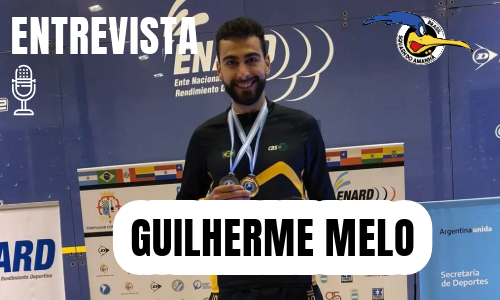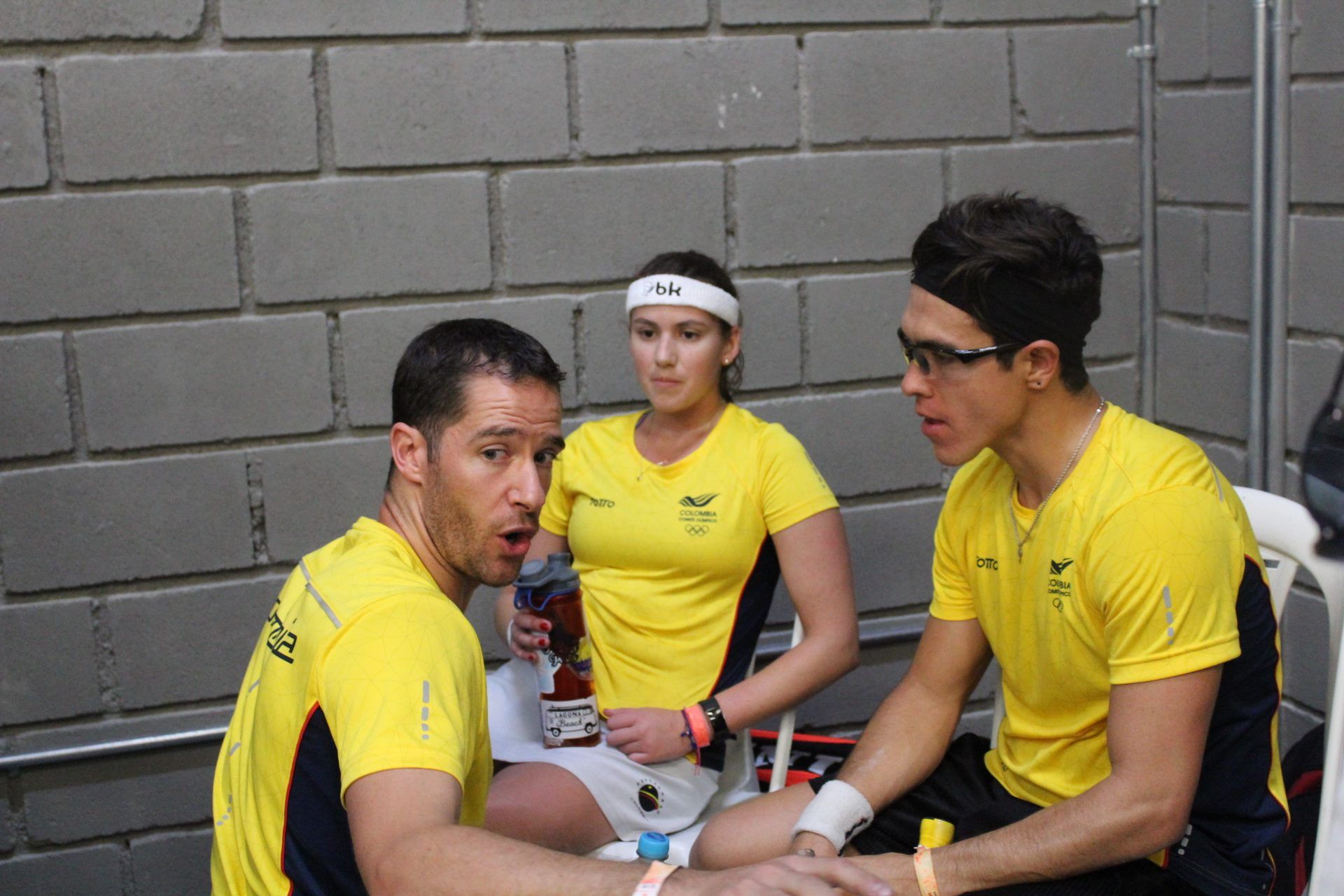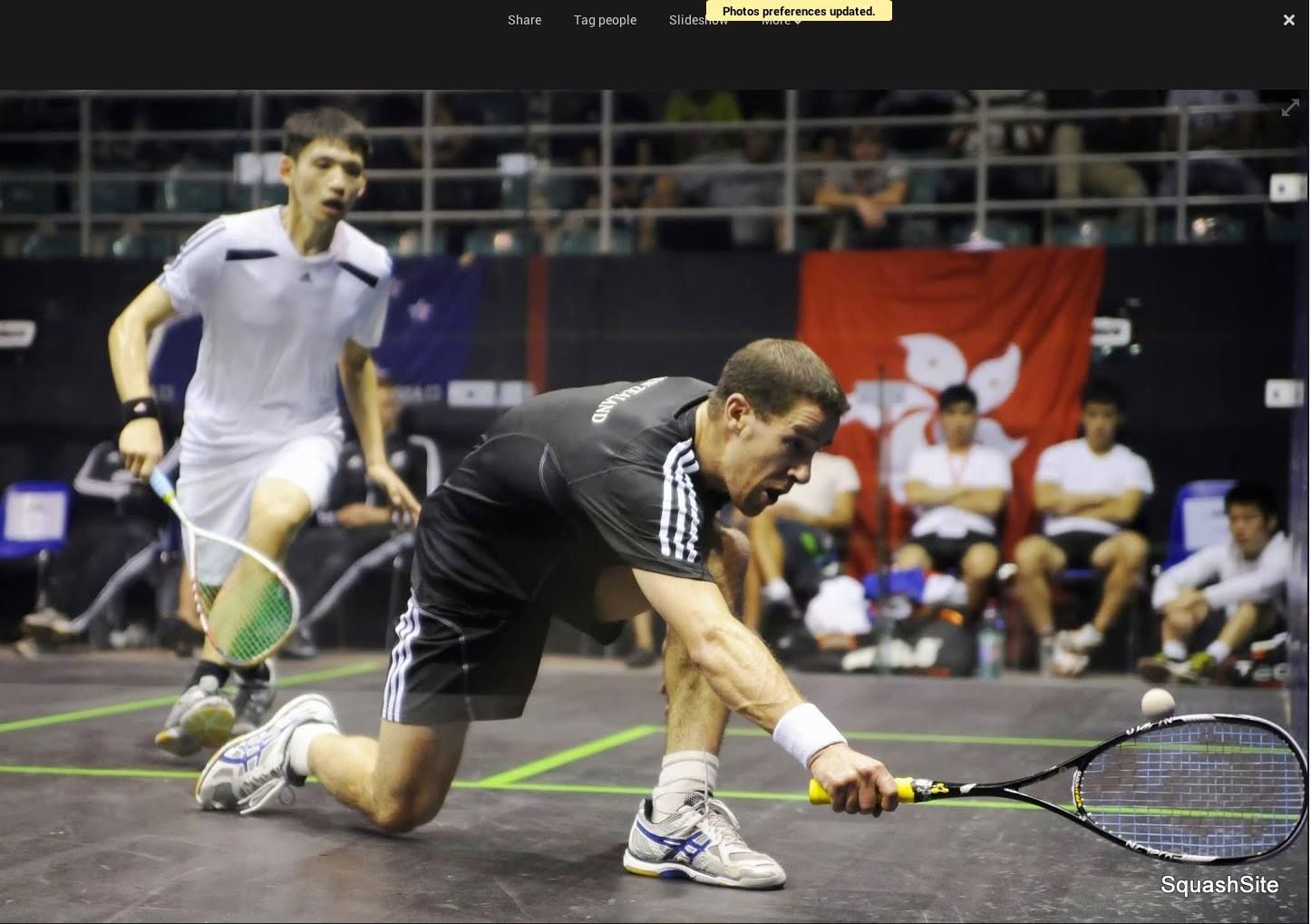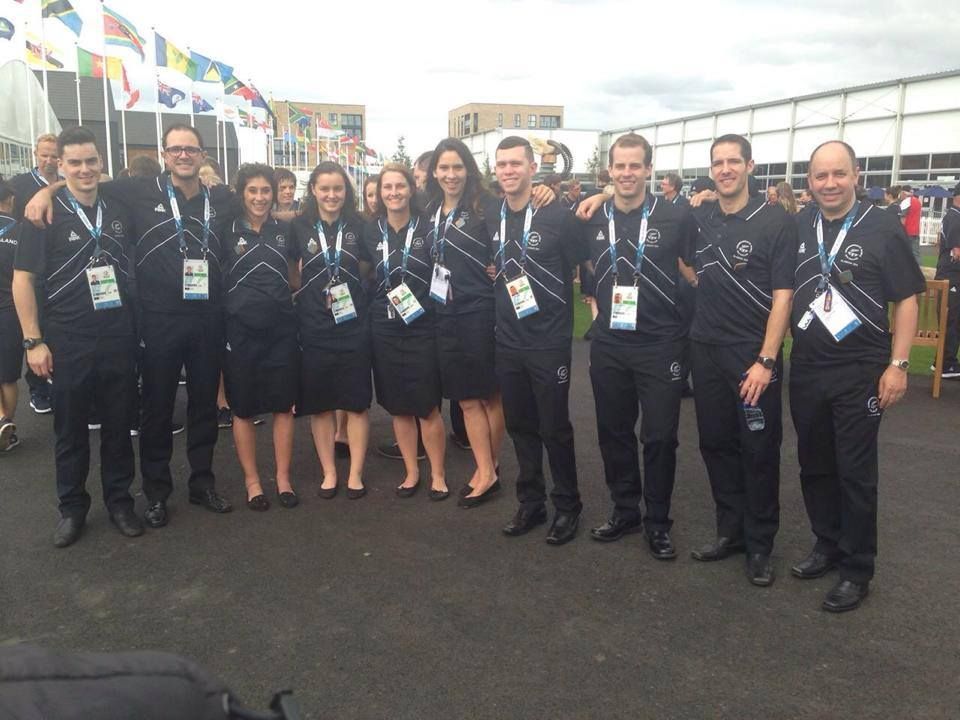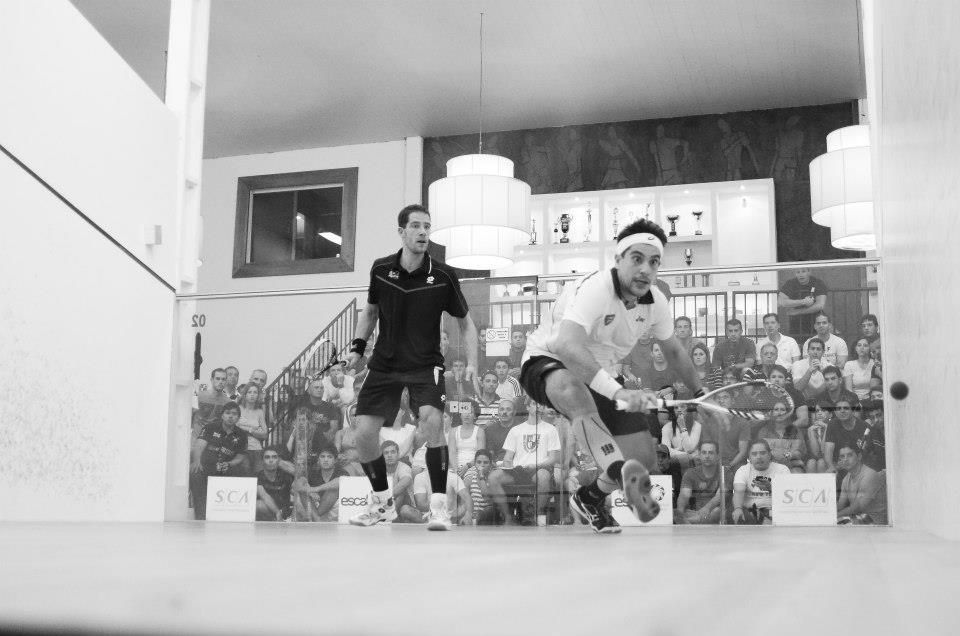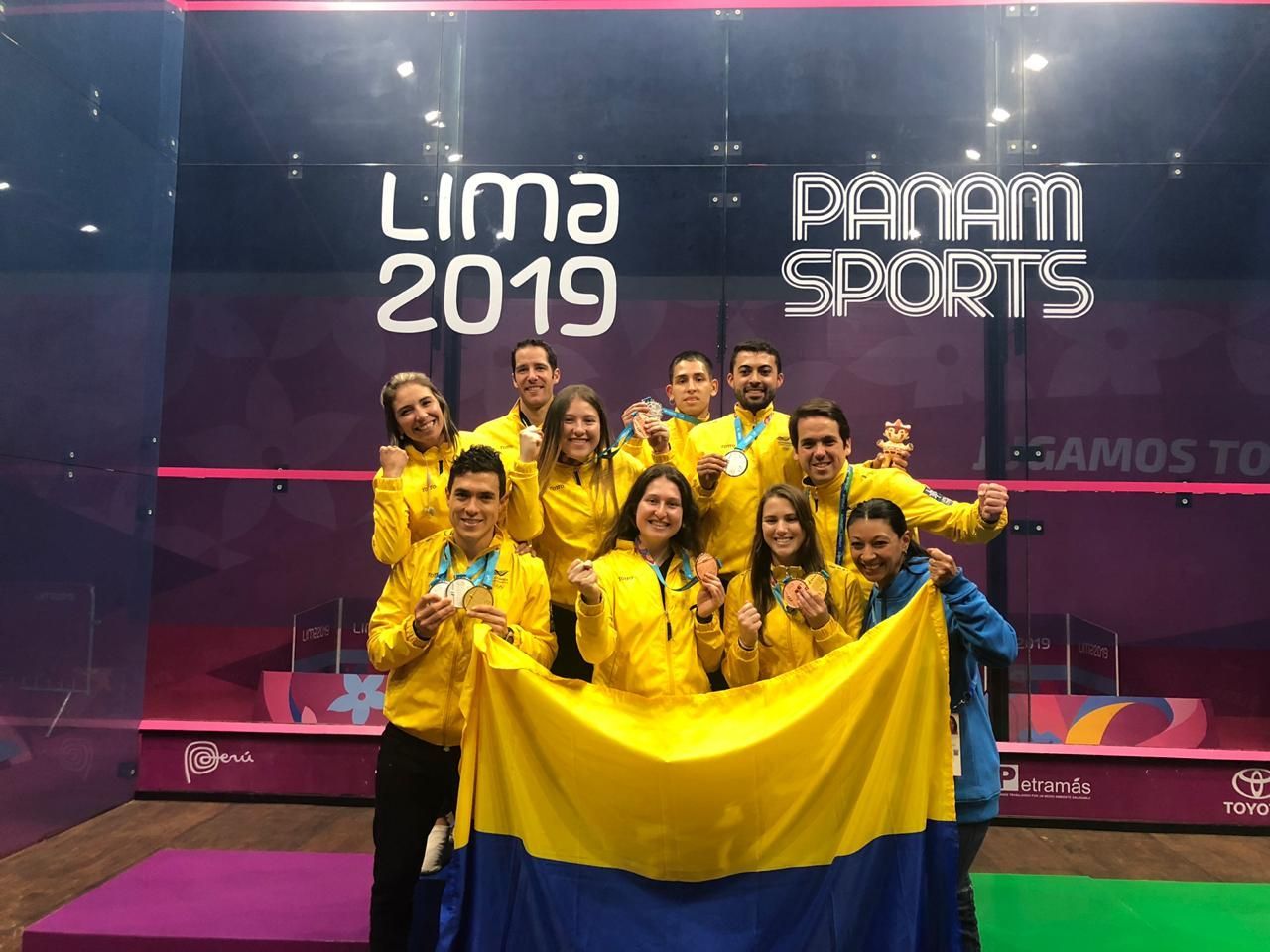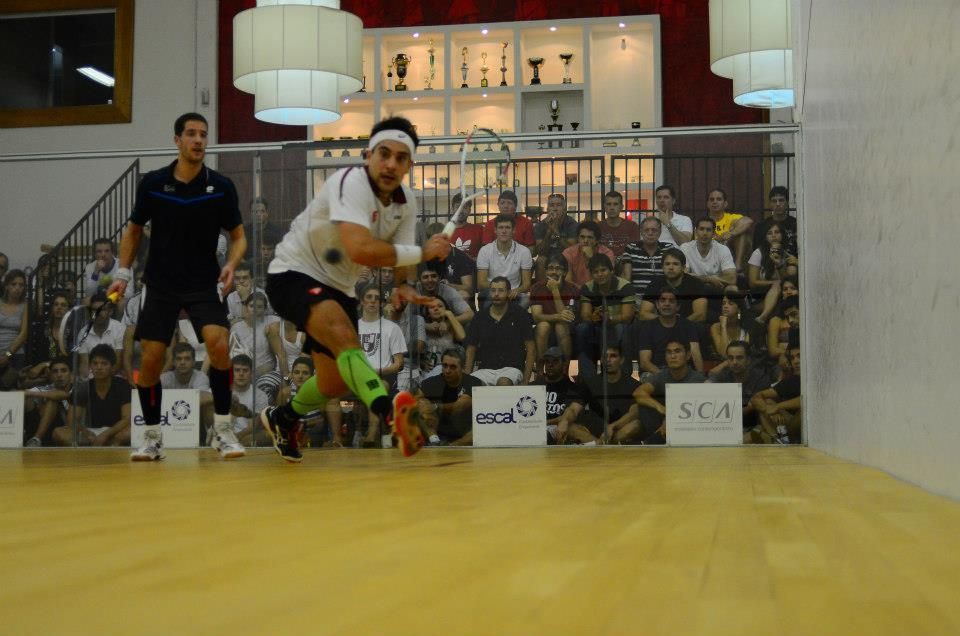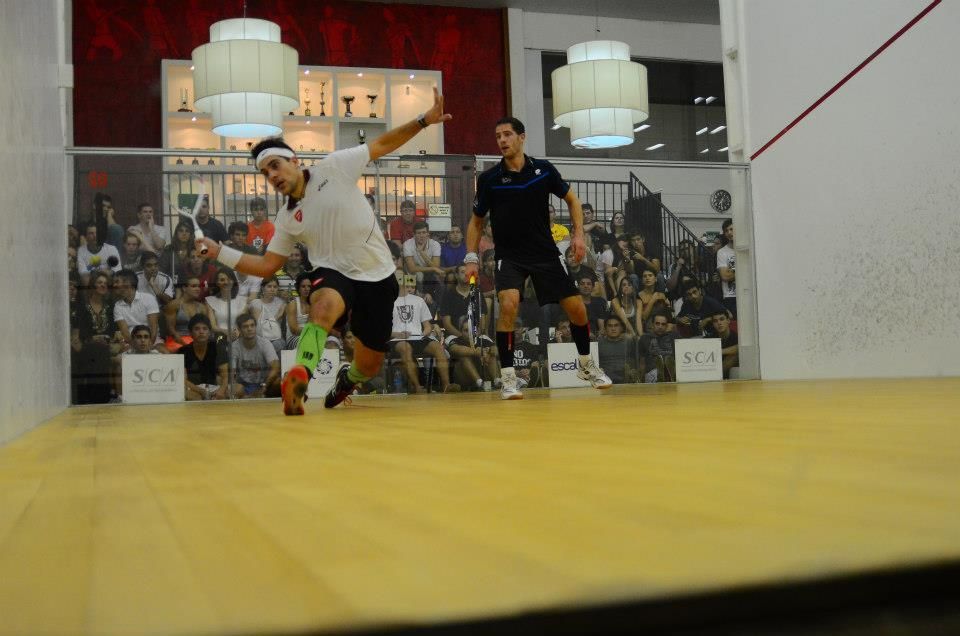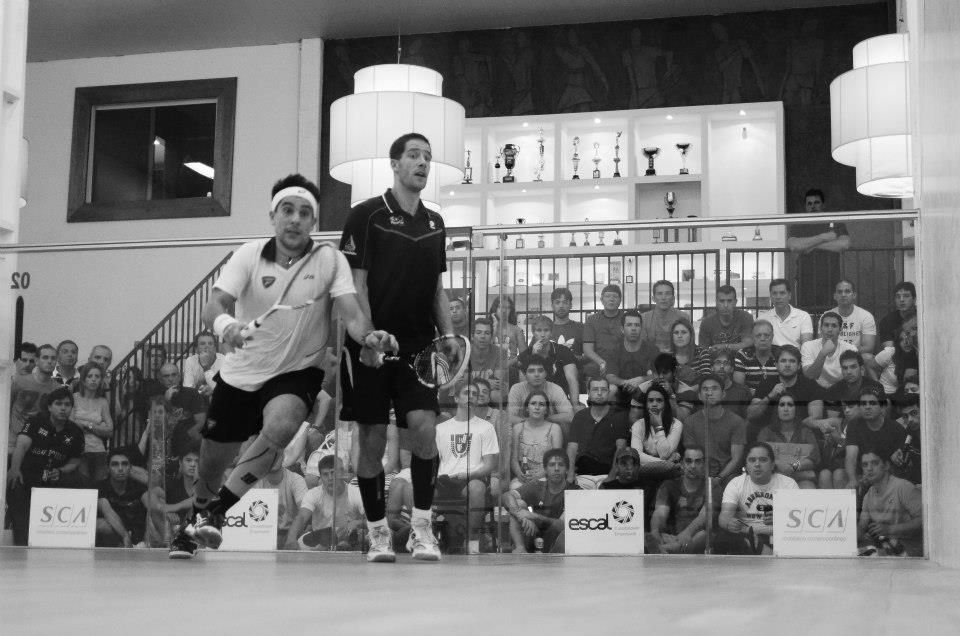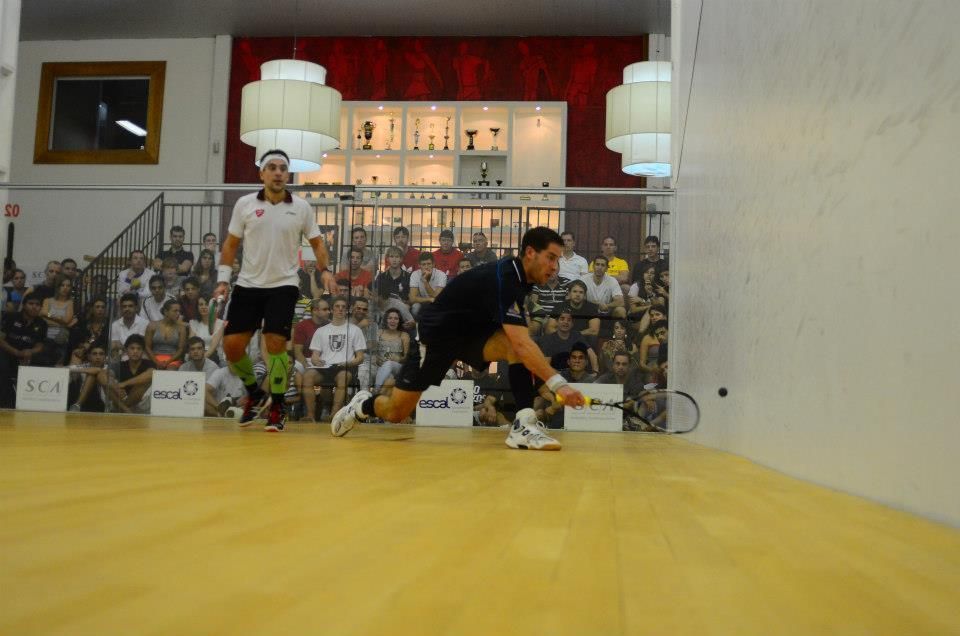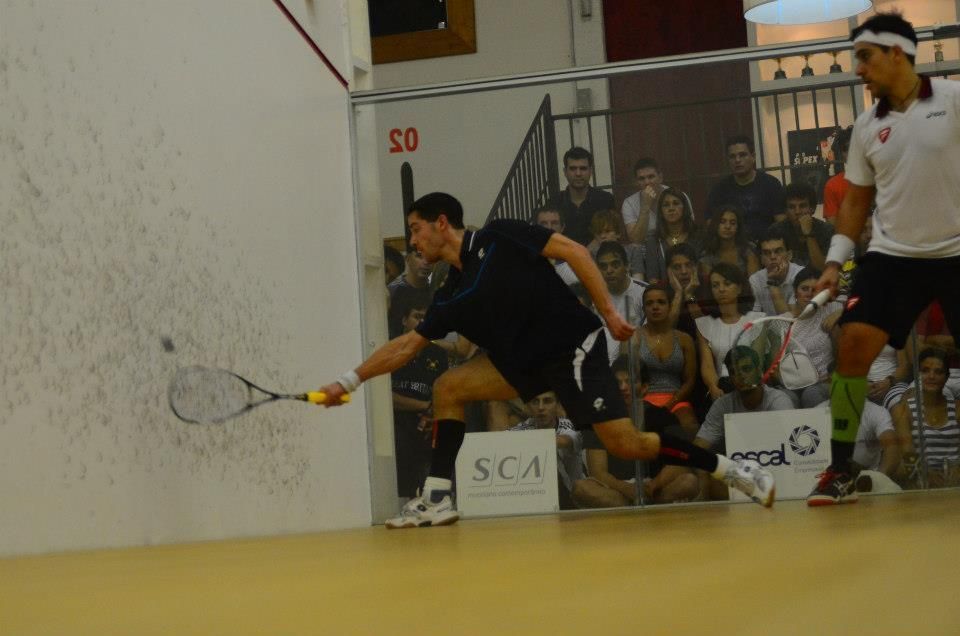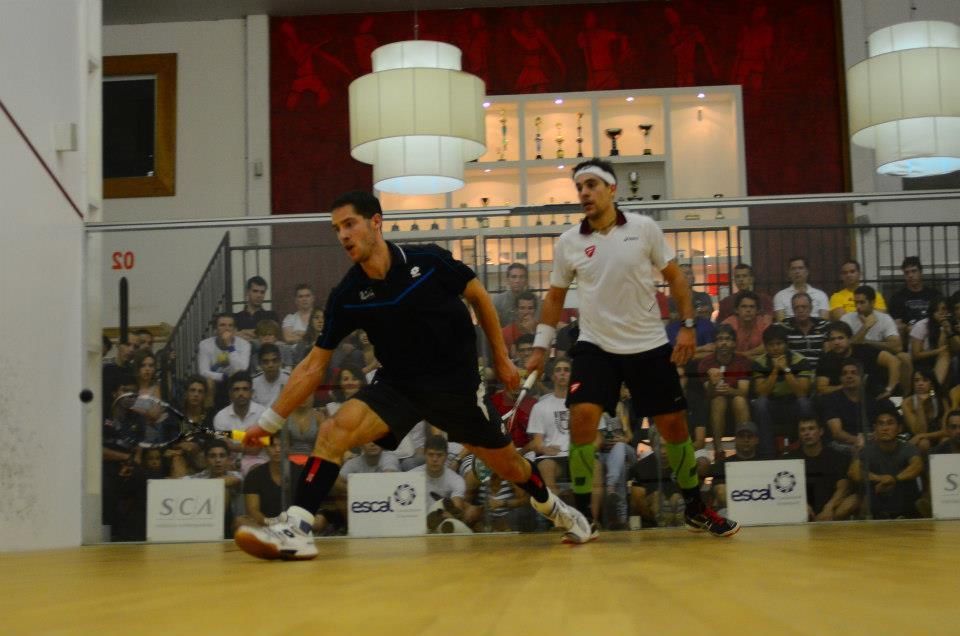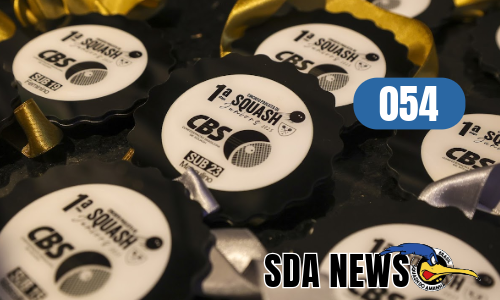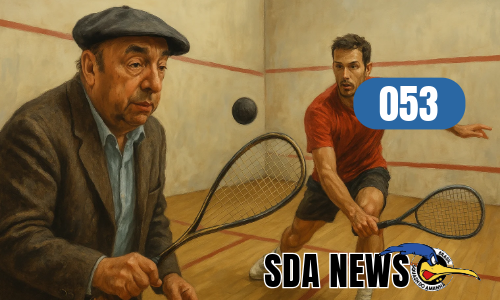SDA ENTREVISTA - Martin Knight
Receba nossa newsletter no Whatsapp. Entrar no Grupo
Siga o Squash do Amanhã no Instagram para não perder nada!
Introdução
Conheci o Martin Knightno primeiro SULAMERICANO que fui em Lima/Peru.
Sempre simpático e de conversa fácil, conversamos muito ao longo em todos os campeonatos que nos encontramos. Head coach da Colômbia há mais de 10 anos e ex top 38 PSA. Seria muito importante aprendermos com que esta tendo sucesso como transformar nossa realidade.
Tell us a little about your history as a youth athlete through to professional level.
My squash story starts a little later than most of the professional/ex professional players. As a child I played a lot of sports, football, tennis, table tennis, cricket. All from the age of 5, it wasn’t until I was nearly 13 that I started to play squash, casually at my local club, for fun with some friends. There was an older coach that I had maybe 3-4 sessions with at the start but then for the next 5 years I was self-taught. I was hyper competitive and played matches every day, 6 days a week. That was all I did for training, I knew nothing else, I didn’t know what a routine was, I had no real structure. I was lucky, we have a lot of tournaments in NZ, I played maybe 15-20 a year, which gave me good exposure to competition.
Looking back, it is kind of strange, my technique was OK, without being great, my ball control was pretty good, however I developed a heightened sense of tactics and became very good at reading the game and my opponents.
My results were also just OK, I was maybe top 20 in NZ for my age until the age of 16. From there I started to improve. I just kept winning local matches, despite not being the best technically, I became hard to beat, moving up to top #4 in NZ when I was 18 and then having my first real international experience, I played the World Juniors in Chennai, India in 2002.
I loved the World Juniors, Chennai was awesome, I was very innocent and inexperienced and just soaked it all in. That event really gave me the want to keep playing and competing, I had never once thought of a career in Squash before that, I decided to give it a go.
I moved to Auckland from Wellington to be closer to the National Program, I was now working with a coach, Julie Hawkes first and then Dave Clark who were 2 of the High-Performance coaches in Squash New Zealand. I had to breakdown pretty much all of my technique and start again, but that didn’t worry me, I enjoyed the challenge (most of the time, haha).
Then from there it was a bit of a slow process, I spent a couple of years training and playing out of New Zealand, I went to England (near London) for 3 months when I was 21 and played a few tournaments, then a year later, Squash NZ setup a part time base in Halifax, Yorkshire, England. I trained there for a couple of years, 4-5 months at a time, always going back to NZ when the season finished. I was floating outside the top #120 for a couple of years.
My big push was when Anthony Ricketts moved to NZ as the national coach, I am not sure the exact year, but 2005 or 2006. He completely changed the way I looked at the game and training for Squash, the volume and intensity doubled overnight, and with that came a certain confidence. In the space of about 6 months, I was able to break through the #100 and then top #50, it was really quite dramatic, he was a very important influence on my squash career in that respect.
Off court, we had an interesting personal relationship outside of training, unfortunately we conflicted on a few things and we were never really able to fully sort them out as after a year and a half in the role, he moved to Australia to work with the AIS, and that was that.
Things changed in Squash NZ, we got a new national coach, Paul Hornsby, who was a coach we were familiar with as he was part of the English structure that we had when we were based there a few years prior. Paul was/is a very good technical coach and I kept working with him when I was in NZ.
I tried to keep the work ethic up, however I was starting to feel a little distant no matter where I was, I was a bit lost in England and didn’t any direction there, I couldn’t base myself in NZ, it was just too far away, so I reached out to Glen Wilson, another former coach who I had briefly worked with when he was with high performance NZ Squash. Glen was living in Montrel, Canada and he said that if I could get there, he would be able to work with me during the season.
Glen was instrumental in this stage of my career, he was the reason I stayed on tour, I went to Montreal for 3-4 months at a time and based myself there to train, I worked with Glen nearly every day and was able to keep up the technical side of training, plus it gave me a structure that I was lacking everywhere else.
After 4 years with Glen, he moved back to NZ a
nd I moved to Toronto. I had gotten used to the Canadian structure and it was a good base for me to play a lot of tournaments. The NSA (National Squash Academy) was up and running and there were quite a few professional players based out of Toronto. I had less of a coaching structure at this stage, but I had plenty of hitting partners which is what I needed.
I stayed in Toronto for the remaining 4 year of my career, I was also coaching a little bit towards the end which I really enjoyed. Then I moved to Colombia to take up the full-time role as National Coach. As a player I was able to remain in the top #50 in the world for at least 10 years, I achieved a highest ranking of #38 in both 2010 and 2012. Whilst I was very consistent and hard to beat for the players outside the top #50, I was unable to breakthrough and get many wins against the top players.
As professional you played against Rafael Alarcon, tell us about this match
I actually played Rafael 3 times. Once in Calgary and twice in Brazil, both in Sao Paulo and again in Brasilia. Haha, I didn’t have particularly good results against him… 😊
I think Rafael and I had similar enough games, we were both very tactical on court, I was probably fitter and faster than Rafa, however his ball control and attention to detail were better than mine. In Calgary I managed to get back to 2-2, he spent the 90 seconds smashing the ball to get it hot again and my lack of experience I didn’t do anything. We went back on court and he chopped me in the 5th game, I couldn’t control it and couldn’t expose his movement. In Brasilia, I was coming off an injury (not an excuse, I was physically fine in the match, I just hadn’t done my normal preparation), I got a game but ended up losing 3-1, again, too much control.
The match that got away from me was in Sao Paulo, I made the final, playing pretty well, I actually beat Mohamed Abouelghar in the semi finals (before he was top #8 in the world). Reaching the final, I got off to a great start, the court was hot and bouncy, the air conditioning had been turned off as had the fans, but I was able to control the first game well and had no problem. After that it got a little tighter but I still managed to stay ahead, 2-0 and then 10-7 championship ball in the 3rd game.
I had a funny feeling there though, I despite being up so far, I was feeling terrible, the head had really started to get to me and I was fading fast. I know instantly that if I didn’t win one of these 3 points then I had lost the match. Rafa saw it as well and knew it. He pushed back winning 3 very long points. He won that game, I never recovered, 10-0 down in the 4th, maybe I got 1 point, 7-0 down in the 5th, maybe I got 3 points.
It doesn’t happen very often that feeling, when you know if it isn’t now, its all over. Rafa had this ability to read people and know it as well. If I was tough to beat, he was extremely tough to beat. I loved the challenge, but I think I deserved just one more point in that match. Haha, not to be.
Still to this day, Rafael Alarcon is the only player I have lost to in a competitive match in Brazil.
How was the transition from athlete to coach? And how did Colombia come into your life?
This is a tough question to answer. Some things were really hard, others quite natural. I had so many changes happen at the same time. Retire from playing, moving to another country, learning another language and culture. It was an intense first 6 months. Still one of the best decisions I have ever made.
The transition to coach I really enjoyed. I have always enjoyed coaching; I love the game and I love seeing others succeed in the sport. I continue to work with High Performance and this comes with a certain type of person, they too are always looking at improving and are happy to work hard to make that happen. I really enjoy this side of things.
I did have an interesting moment early on, maybe 6 months into the job, we went to the World Doubles in England. The New Zealand team kept on making fun of me that I was wearing the wrong colours on my back. It was a surreal moment as I had spent the last 15 years of my life travelling with, competing with, sharing memories and events with every player and coach in that team. Down to the newest player in the team was actually someone that I had known for nearly 30 years as we were members of the same club growing up. That hit a little close to home, but really, they were happy for me and I was happy to see them.
Colombia was just right place right time. I was looking at making the transition from player to coach but wasn’t having a lot of luck in Toronto (where I was living and wanting to stay). I got a call from the president of the federation at the time (Pablo Serna) who mentioned that they were looking for someone to step into the National Coaches role, it would be working with the national teams, men and women’s as well as the Junior Boys and girls. The role was very attractive to me as it would keep me involved in high performance. Plenty of coaching plus so many events.
I had been to Colombia for their PSA tournament twice and knew a little about the country, but really not a whole lot, I was very apprehensive about not being able to speak Spanish, but that was really my only concern, everything else was exciting to me. I only saw positives.
Two months later I was packing up my old life and moving to Bogotá, Colombia. I have never looked back.
How do you see the development of Squash in South America? And what could be done to grow it even more?
I believe that Squash in South America had grown, there are many reasons for this but definitely the success of Diego Elias has had a positive impact on the sport in the region. He has been instrumental in Perú, but his reach is so much further than that. Miguel Rodriguez continues to be the face of Squash in Colombia and his success is phenomenal as well. They have paved the way for other professionals in South America and we now have more than ever before.
At the last Pan American Games in the men’s division, 3 out of the top 4 countries were from South America, Colombia won beating Argentina in the final (both South American), an event which has recently been dominated by the USA and Mexico.
It is important for South America to continue to have local events and stay relevant. The South American Juniors needs to be a priority for growth and development, if there could be another regional event in the second half of the year that would be very good as well.
Squash continues to be an elite sport with limited access to the general public. Having more courts available would definitely grow the sport.
How important are the Olympic Games for Squash? Have you noticed any changes in the media?
I hope that the Olympic Games helps squash in terms of publicity. It is a fantastic sport that whilst is played all around the world, is unfortunately not particularly well known in mainstream sports. I have seen bits and pieces of new media; however, I think it is still early days. Paris 2024 was less than a year ago and we are not seeing the full media push towards LA 2028 just yet. It will increase as we get closer to the event.
Mauricio Penteado
Fundador do SDA e criador da Escola do Squash
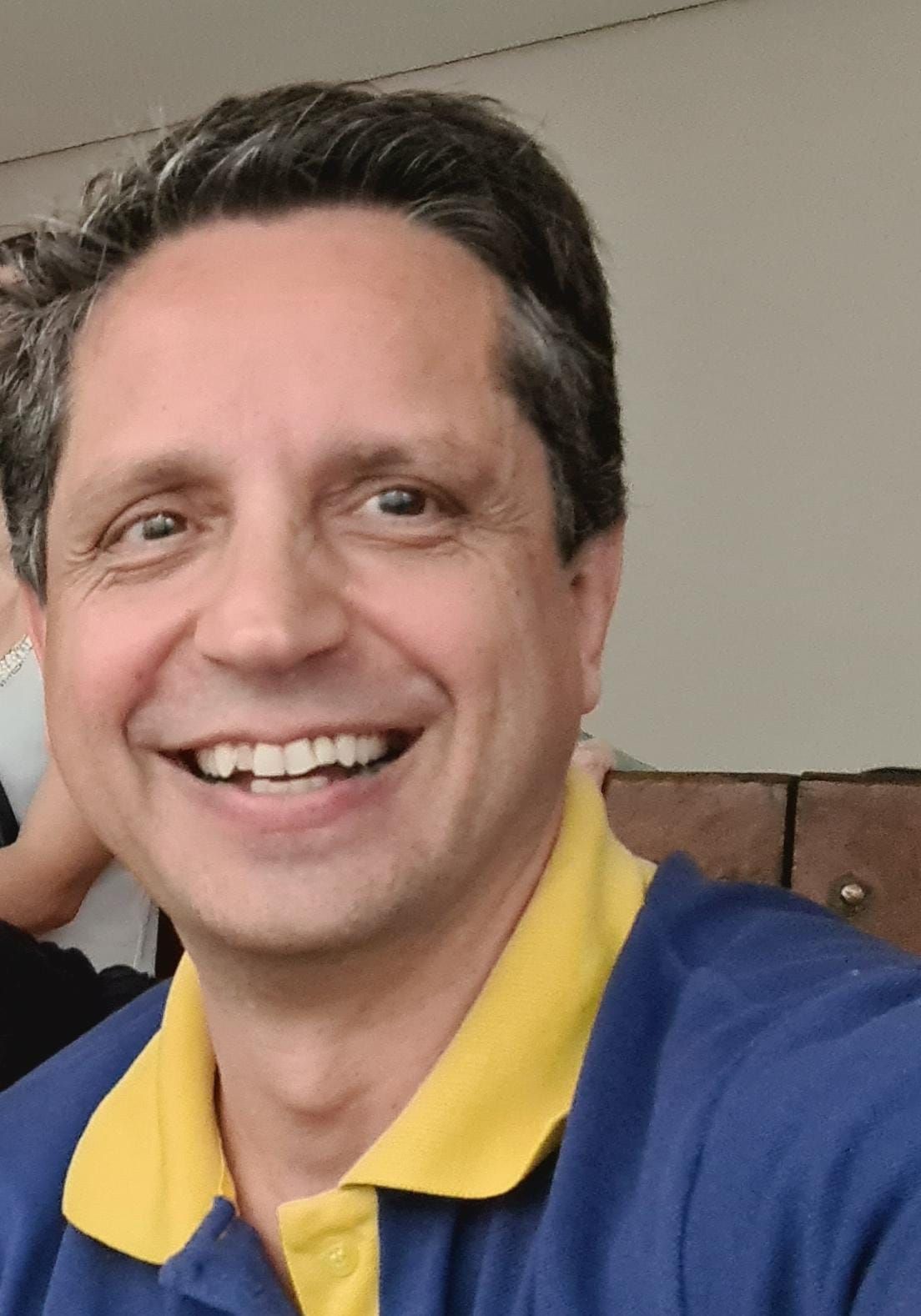
Ajude o Squash do Amanhã compartilhando nosso conteúdo:
